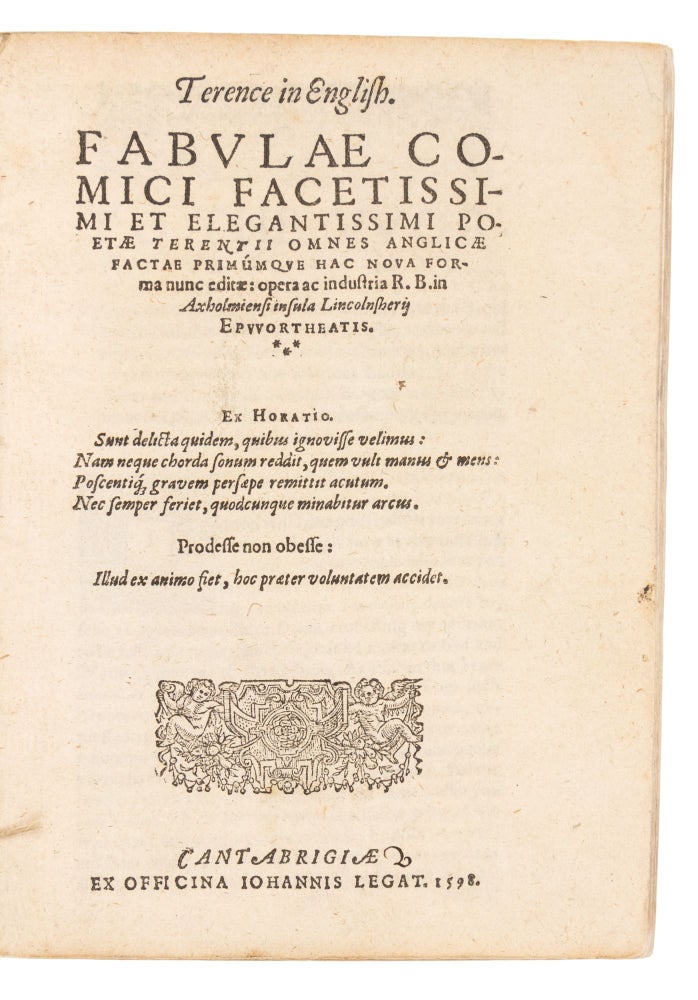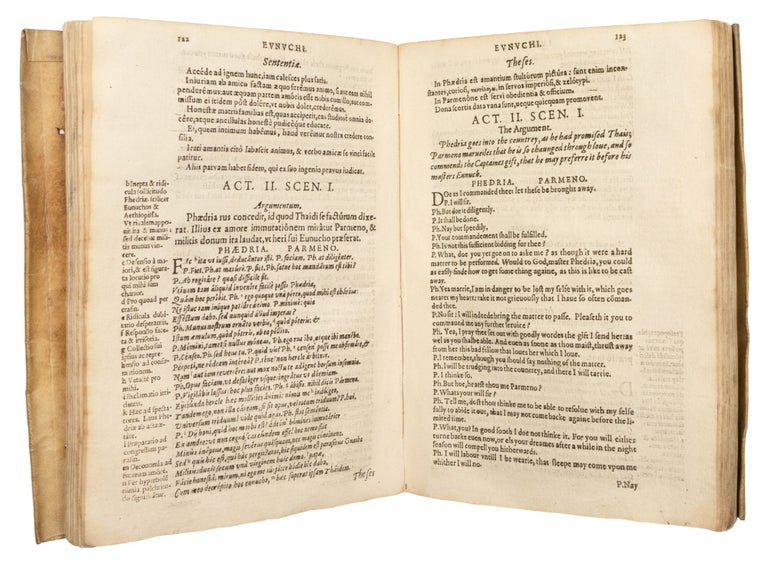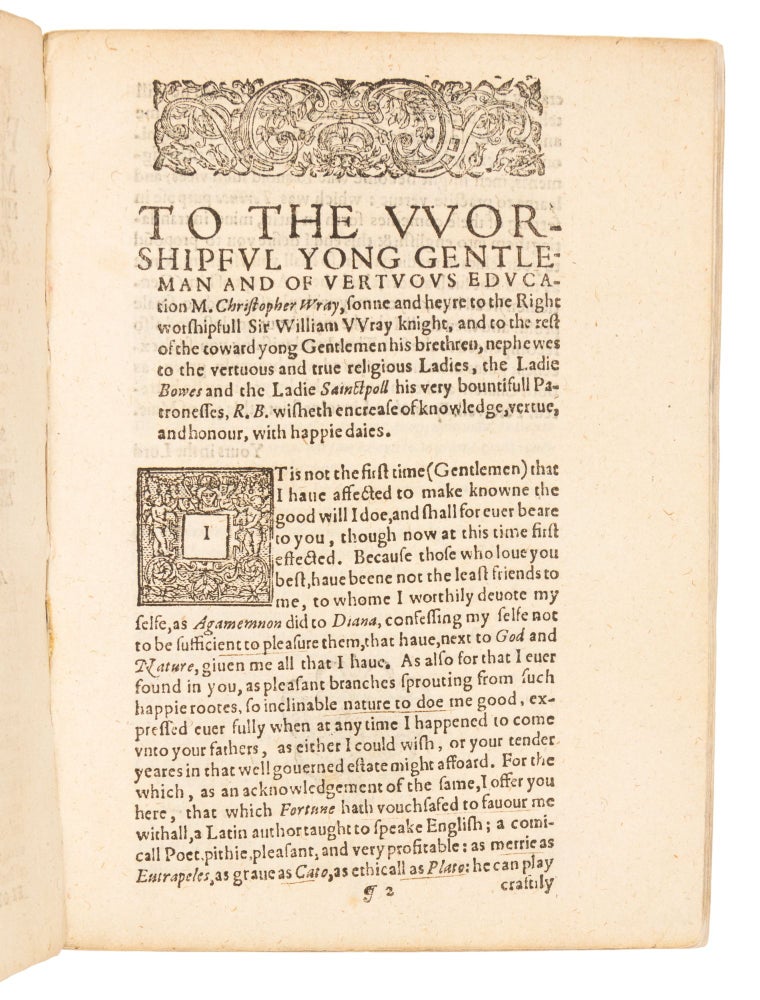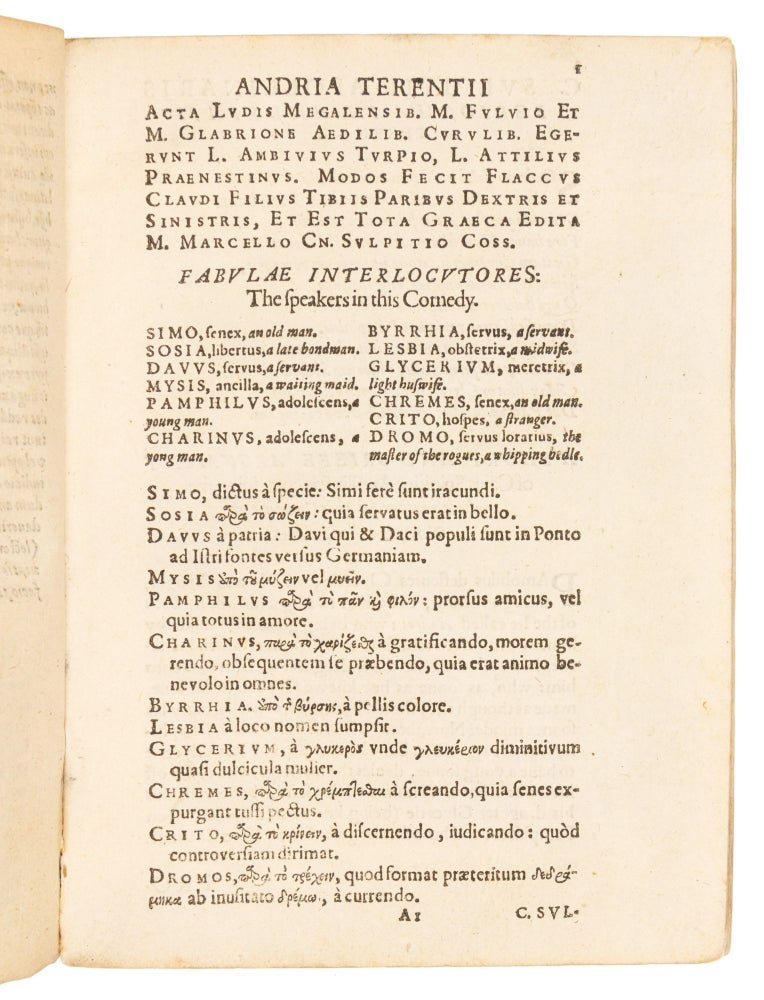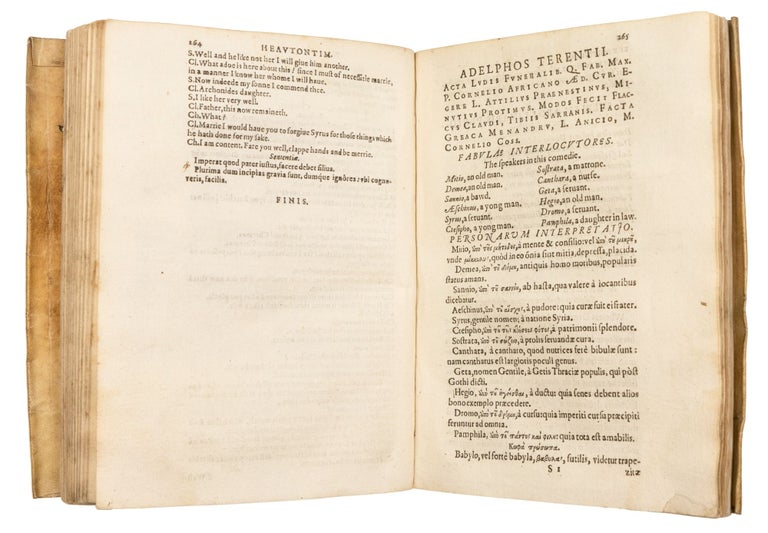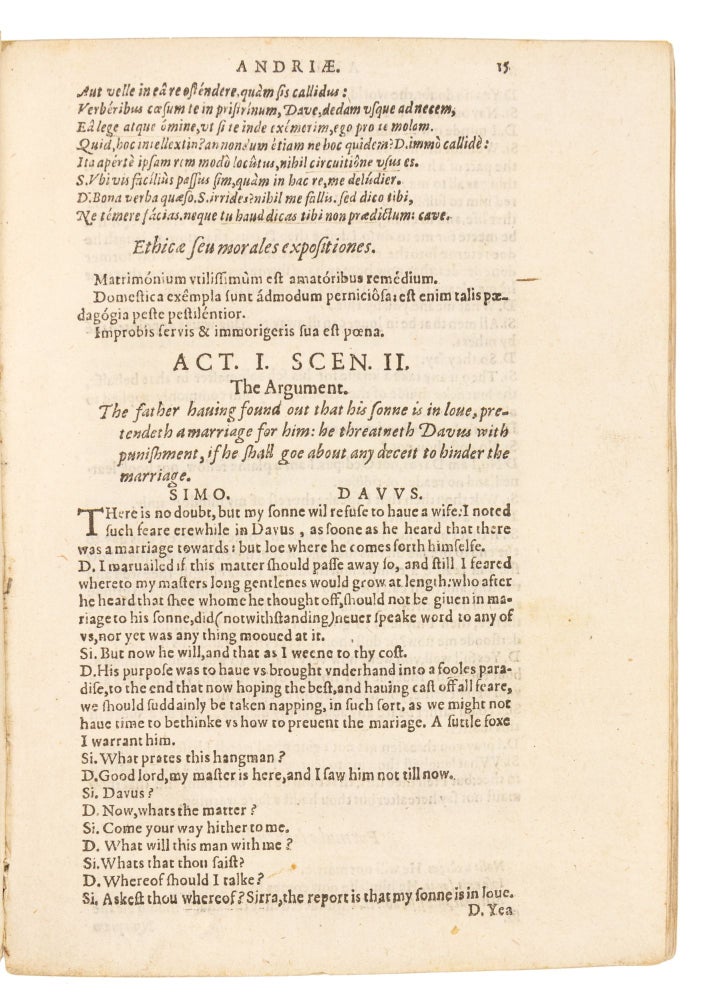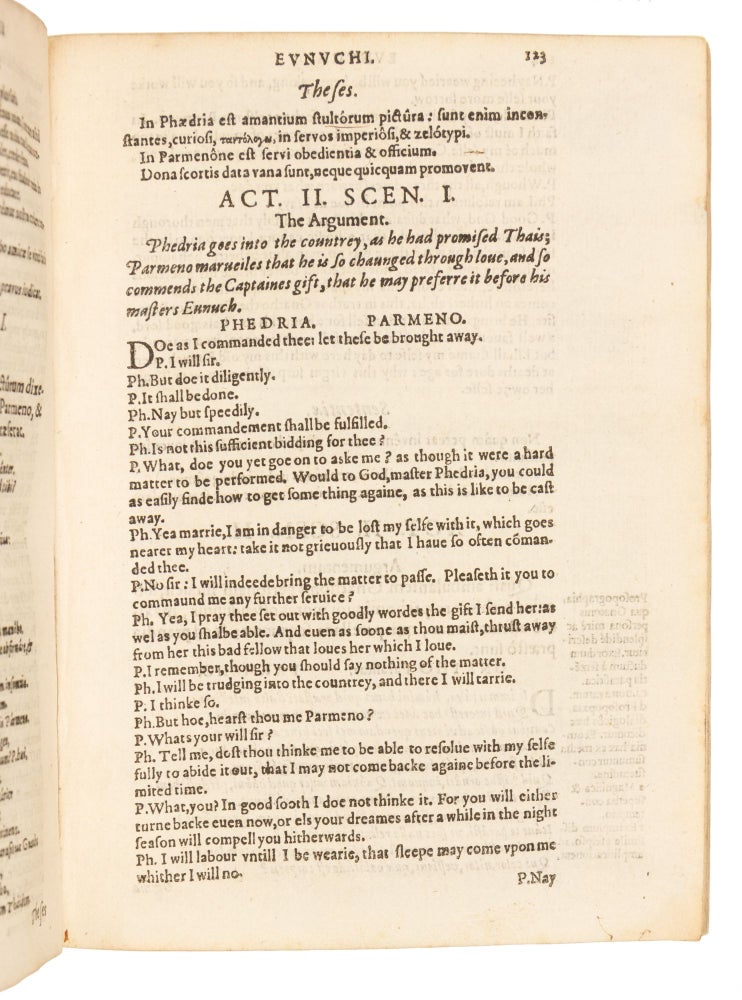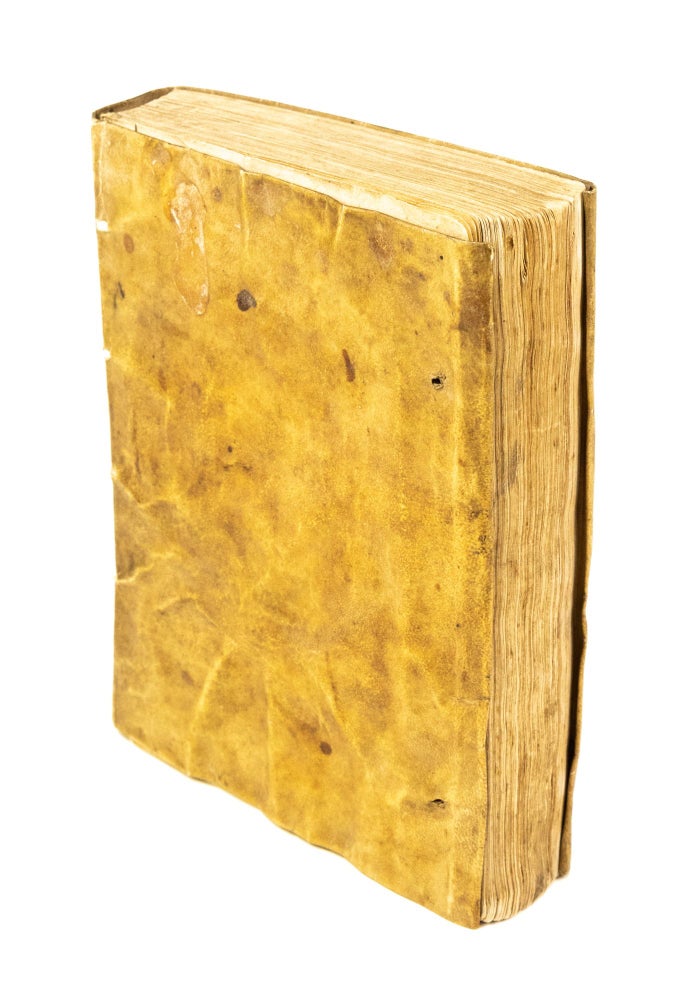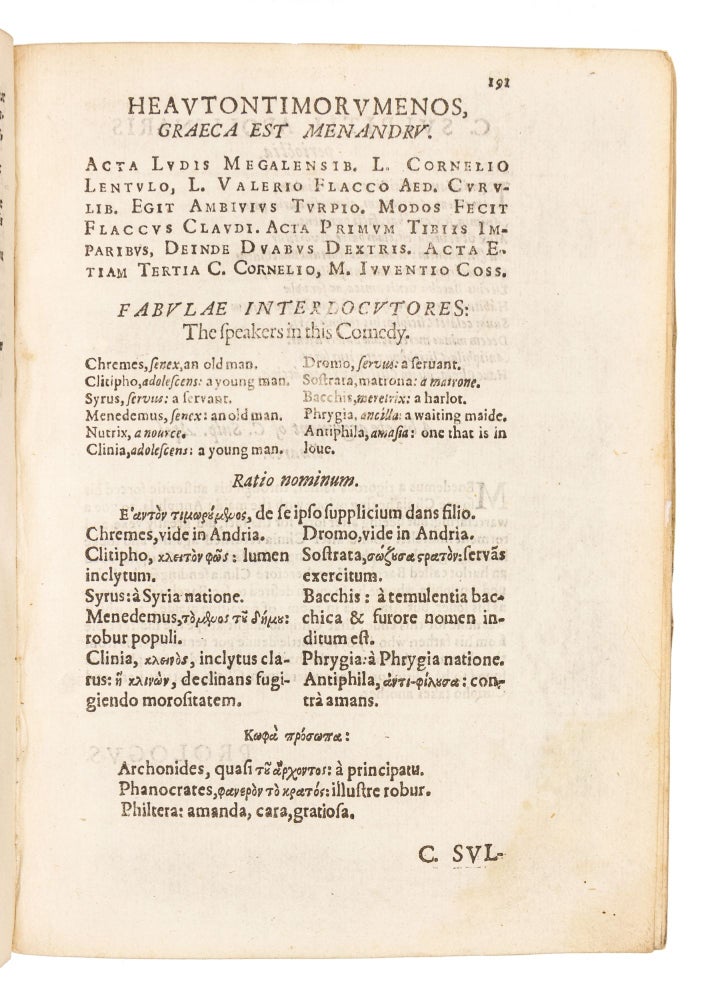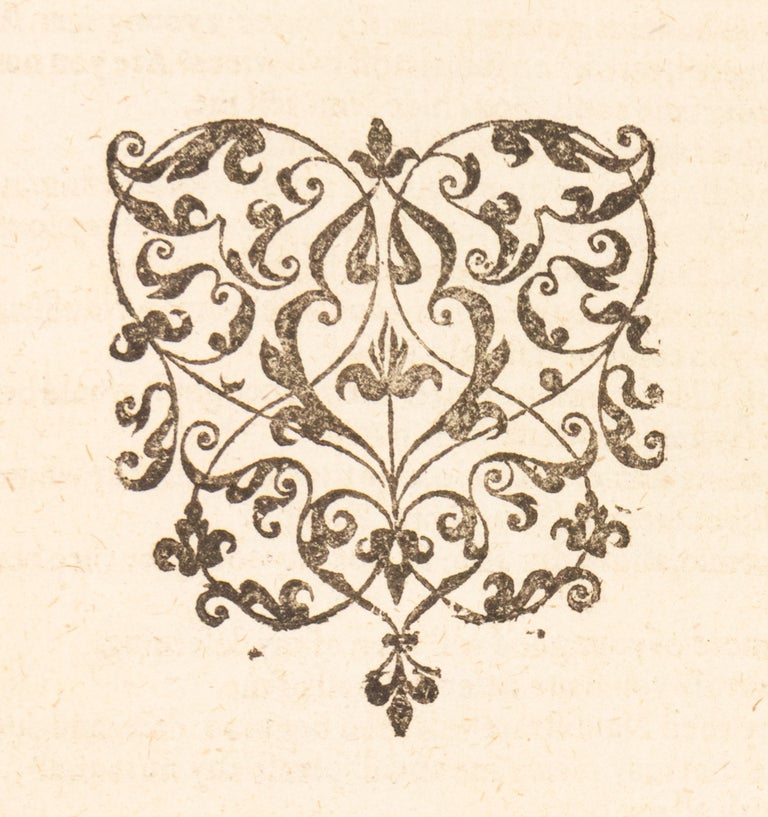Terence in English. Fabulae comici facetissimi et elegantissimi poetæ Terentii omnes Anglicæ factae primúmque hac noua forma nunc editæ: opera ac industria R.B. in Axholmiensi insula Lincolnsherij Epvvortheatis
Cambridge: ex officina Iohannis Legat, 1598.
Price: $15,000.00
Quarto: 17.6 x 13 cm. [8], 340, 337-455, [1] p. Collation: ¶4, A-Q8, R4, S-Z8, Aa-Ff8, Gg2
FIRST ENGLISH EDITION.
Bound in contemporary vellum, a bit rumpled, lightly soiled, text block loose at front. A very fine, crisp copy. Smudge on leaf C1, ink spot on leaf G2; small, faint dampstain to upper margin in gatherings E and F. Variable light damp-stain to lower, outer corner starting in gathering L, a bit darker in a few gatherings (L, O, Q); a few natural marginal paper flaws (not affecting text.).
An important Elizabethan translation, Richard Bernard’s 1598 “Terence in English” at last made these Roman comedies available to Latin-less English readers and performers. It has been argued that certain phrasings from Bernard’s English Terence are found in Shakespeare’s Much Ado About Nothing, All's Well That Ends Well, Twelfth Night, The Taming of the Shrew, The Comedy of Errors, The Merchant of Venice, and Hamlet (see The New Shakespere Society's Transactions 1875-6, volume 4, p. 198 et seq.).
Although numerous Latin editions of the works were printed in England throughout the 16th c. -attesting to the popularity of the author- an English translation of only one of Terence’s plays, the “Andria” (known in one copy) was previously printed (at Paris ca. 1520.) In this edition, the text is given in both English and the original Latin.
“Terence's comedies have provided plots and characters for comic drama from classical times to the present; the outstanding comic playwright of his generation at Rome, he has influenced authors from Molière and Wycherley to P. G. Wodehouse. Scheming slaves, parasites, prostitutes, pimps, and boastful soldiers populate his plays, which show love triumphing over obstacles of various kinds, and the problems that arise from ignorance, misunderstanding, and prejudice. Although they reflect contemporary tensions in Roman society, their insights into human nature and experience make them timeless in their appeal.”(Oxford Press)
Terence’s scandalous material had (and continues to have) obvious appeal but of course publishers and translators were careful to note the moral lessons to be drawn from these expositions of outrageousness:
“In his dedicatory epistle and his preface to the reader, Bernard stresses the importance of Terence for learning correct, clear and elegant Latin, but especially highlights the moral content of his work: ‘in telling the truth by these figments, men might become wise to avoid such vices, and learne to practise vertue; which was Terence purpose in setting these comedies forth in latin, mine in translating them into english’.”(Verbeke, Types of Bilingual Presentation in the English-Latin Terence, p. 77).
ESTC S118303; STC (2nd ed.), 23890


